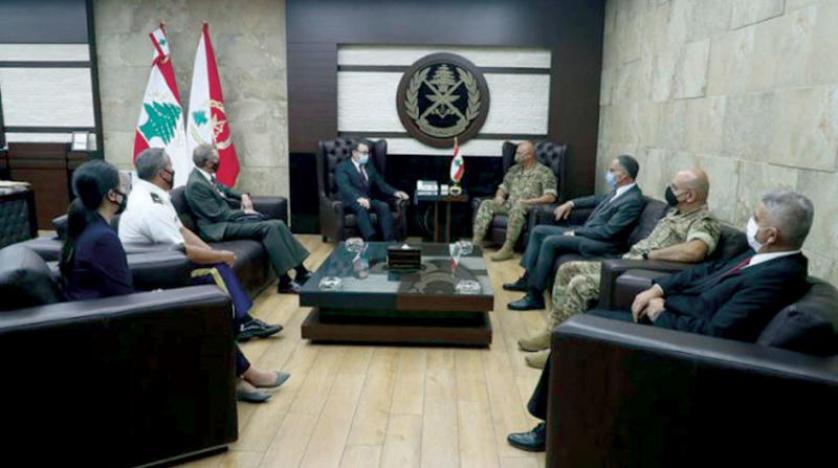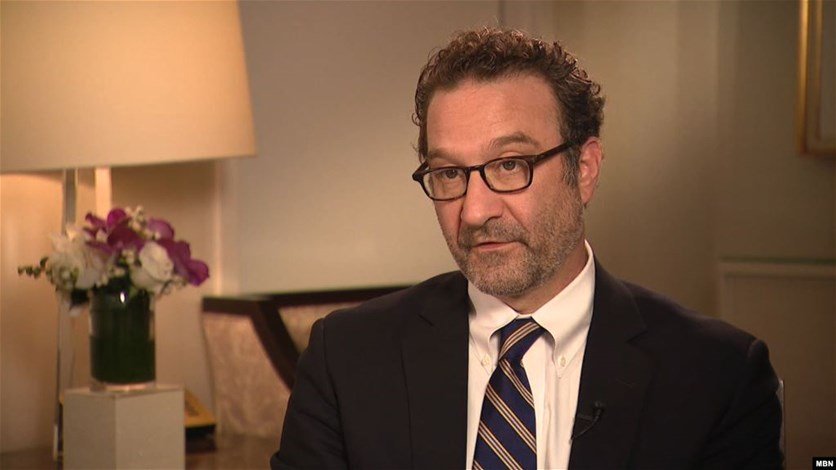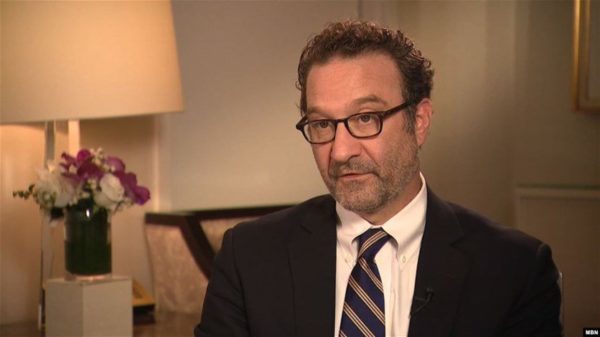By Emma Graham
KEY POINTS
- U.S. Assistant Secretary of State for Near Eastern Affairs David Schenker concludes his two-day trip to Lebanon on Friday.
- Since the devastating explosion at Beirut’s port, the United States has given $18 million in aid to Lebanon, Schenker said.
- The World Bank has estimated that the Beirut explosion will cost $4.6 billion in damages.

U.S. Assistant Secretary of State for Near Eastern Affairs David Schenker concludes his two-day trip to Lebanon on Friday after choosing to only meet with opposition demonstrators rather than members of the country’s political establishment.
His visit to Beirut comes exactly one month after the devastating explosion at the capital city’s port. The blast shattered swathes of the city at a time when the country was already reeling from a political crisis, an economic meltdown and the coronavirus outbreak.
“We are engaged, we’re talking to the leadership. We are encouraging this leadership to be flexible, to embrace reform, to embrace transparency, to fight corruption, and to get with the program,” Schenker told CNBC’s Hadley Gamble.
“It can no longer be business as usual here in Lebanon. We’ve made that clear to them,” he added.

However, in a sign of U.S. frustration with the government in Lebanon, he only met with civil society representatives and didn’t meet with any members of the political establishment in the country.
It comes after diplomat Mustafa Adib was named as the disaster-stricken country’s new prime minister earlier this week. Speaking shortly after his appointment, Adib said he hoped to “hit the ground running” by swiftly implementing much-needed reforms and “put the country on a road to recovery.”
Schenker told CNBC that Lebanon’s new prime minister will face the same headwinds as his predecessor, Hassan Diab, who quit after the Beirut explosion.
Aid to Lebanon

The World Bank has estimated that the Beirut explosion will cost $4.6 billion in damages.
French President Emmanuel Macron was the first to visit the site of the explosion and, days later, set up a virtual donors conference where world leaders pledged around $298 million to help with the country’s recovery effort.
The European Commission has pledged 30 million euros ($35 million) in additional aid to the country, while Germany has pledged an extra 20 million euros and France, 30 million euros. European aid to Lebanon previously had been focused on helping the country mitigate the impact of the refugee crisis — the EU has allocated a total of 2.3 billion euros of assistance since 2011.
Meanwhile, since the blast, the United States has given $18 million to Lebanon, with another $12 million in the pipeline, Schenker said. This is more than the $17 million first pledged by the State Department last month.
“The United States is doing more than any other country in the world,” Schenker claimed.
Political pressure
Macron also visited Beirut this week in a bid to push Lebanon’s sectarian political system out of gridlock and asked the leadership to implement a series of strict reforms within one to three months.
He also asked Lebanese officials to form a government in two weeks, stressing that political failure would mean the withholding of foreign aid. The World Bank has described international aid and private investment as essential for Lebanon’s comprehensive recovery and reconstruction.
Macron’s plan highlights key areas of policy in need of reform, such as the country’s electricity sector. In parts of Lebanon, people are without power for over 20 hours a day.
Schenker told CNBC that Macron’s draft proposal for Lebanon was “ambitious.”
“It is warranted that President Macron has set a timeline. As one diplomat told me yesterday, the Lebanese are great procrastinators. This timeline may slip, but I think it’s important that we try and hold them to some timeline or instill a sense of urgency for getting these reforms underway,” he added.
Financial reform
Lebanon’s political class has ruled over the small Mediterranean country of nearly 7 million in a sectarian system brokered by a post–World War I French Mandate. Their negligence is widely blamed for the Beirut explosion on August 4 that killed 190 people, left over a quarter of a million people homeless and cost an estimated $4.6 billion in damages.
One of the new government’s key challenges will be implementing financial reform amid a crumbling system that has left more than half the Lebanese people living below the poverty line. Unemployment is over 30% and annual food inflation is at a record 190%.
Henri Chaoul, former advisor to Lebanon’s minister of finance, told CNBC on Thursday that, “for real financial reform as a whole, there is no way this is going to happen in the presence of Riad Salameh as governor of the Central Bank.”
Salameh declined to comment for this article. He is due to speak to CNBC Monday.
CNBC


Leave a Reply
You must be logged in to post a comment.